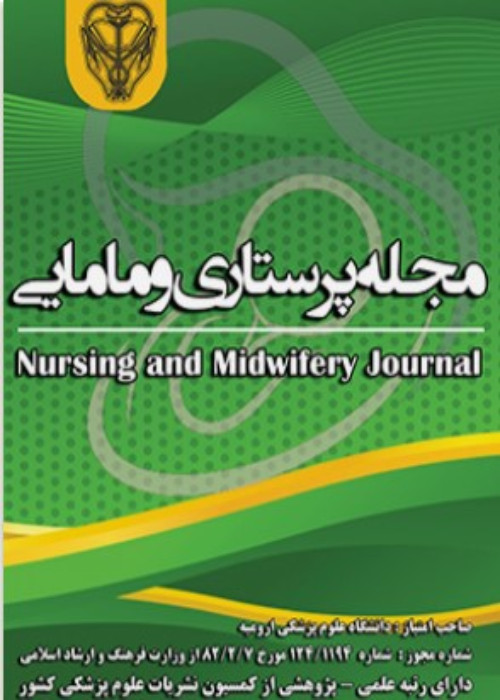ARTIFICIAL INTELLIGENCE IN NURSING AND MIDWIFERY CARE: A NEW SOLUTION OR NEW ETHICAL CHALLENGES?
Artificial Intelligence (AI) technology's advancement has made it possible to utilize it in the nursing and midwifery fields to improve decision-making, provide better care for patients, and enhance the performance of healthcare systems. The application of artificial intelligence in these domains has gained attention as a practical and innovative approach to providing care services. However, the real-world applications of AI across all domains of both professions are limited, and new ethical challenges arise with the use of AI in healthcare. Real-world applications of AI in nursing and midwifery: AI techniques are being applied in nursing and midwifery to improve decision-making, patient care, and service delivery (1). AI can also support nurses' clinical decision-making in complex care situations or conducting tasks that are remote from direct patient interaction, such as documentation processes (2). Ethical challenges: New ethical challenges arise with the use of AI in healthcare. For example, nurses and midwives should ensure that integrating AI into the health system is introduced that is ethical and aligns with core nursing values such as compassionate care (3). Although using AI in nursing and midwifery can be an auxiliary tool for nurses and midwives, but cannot be considered as a substitute for them. Nurses and midwives play a crucial role in providing healthcare services to patients, and besides providing care to the patient, they also assist in emotional and psychological support, which contributes to improving their health. AI can be used in specific tasks such as processing disease data, diagnosing some diseases, and providing support in clinical decision-making, but it cannot replace the human role of nurses, midwives, and healthcare professionals (4, 5). The potential of AI to improve decision-making, patient care, and healthcare services in nursing and midwifery is highly valuable. Using of artificial intelligence as a novel and effective approach to providing improved care services has been significantly enhanced. However, new ethical challenges arise with the use of AI in healthcare, and there is a need for greater participation among all the stakeholders involved. Nurses and midwives should ensure that integrating AI into the health system is introduced that is ethical and aligns with core nursing values such as compassionate care. Data science models can also help improve midwives' learning competencies, push digital leaning toward personalized content, and provide an adaptive learning journey. There are several limitations of AI in nursing and midwifery care that need to be considered, including:1. Lack of human touch: Nursing and midwifery care requires a personal touch and emotional support, which AI systems cannot provide. 2. Limited interpretation of patient needs: AI systems rely on data and algorithms to generate recommendations, which may not fully capture the unique needs and preferences of individual patients 3. Limited ability to provide physical care: AI systems cannot provide physical care, such as administering medications or performing procedures, which are important aspects of nursing and midwifery care. 4. Limited ability to handle complex situations: Nursing and midwifery care often involve complex situations that require critical thinking and decision-making skills, which AI systems may not replicate. 5. Dependence on data quality: AI systems rely heavily on accurate and comprehensive data to generate recommendations. Data quality issues, such as incomplete or inaccurate data, can compromise the accuracy of AI-generated recommendations. 6. Ethical considerations: The use of AI in nursing and midwifery care raises ethical concerns related to patient privacy, data security, and the potential for AI to decide without human oversight. 7. Cost: The development and implementation of AI systems can be expensive, limiting their accessibility and adoption in certain nursing and midwifery care settings (1, 6-8). What ethical challenges arise with the use of AI in health care? Using artificial intelligence (AI) in healthcare raises several ethical challenges that must be addressed. Here are some of the ethical challenges of AI in healthcare:Impact on patient autonomy: AI in healthcare may impact patient autonomy, and patients must be involved in decision-making (7). Informed consent: The use of AI in clinical practice raises immediate challenges in integrating it into clinical practice, including how it will interface with the principles of informed consent (9). Safety and transparency: There is a need for safety and transparency in using AI in healthcare, including the need for clear guidelines and regulations (10). Data privacy: The use of AI in healthcare involves the collection of personal and sensitive data that needs to be kept secure and protected from potential cyber-attacks (11). Accountability and transparency: There is a need for accountability and transparency in the development and use of AI in healthcare, including the need for clear guidelines and regulations (12). In conclusion, the use of AI in healthcare raises several ethical challenges that need to be addressed, including informed consent, safety and transparency, data privacy, accountability and transparency, and impact on patient autonomy. It is important to develop clear guidelines and regulations to ensure that AI is developed and implemented ethically and responsibly.
- حق عضویت دریافتی صرف حمایت از نشریات عضو و نگهداری، تکمیل و توسعه مگیران میشود.
- پرداخت حق اشتراک و دانلود مقالات اجازه بازنشر آن در سایر رسانههای چاپی و دیجیتال را به کاربر نمیدهد.


